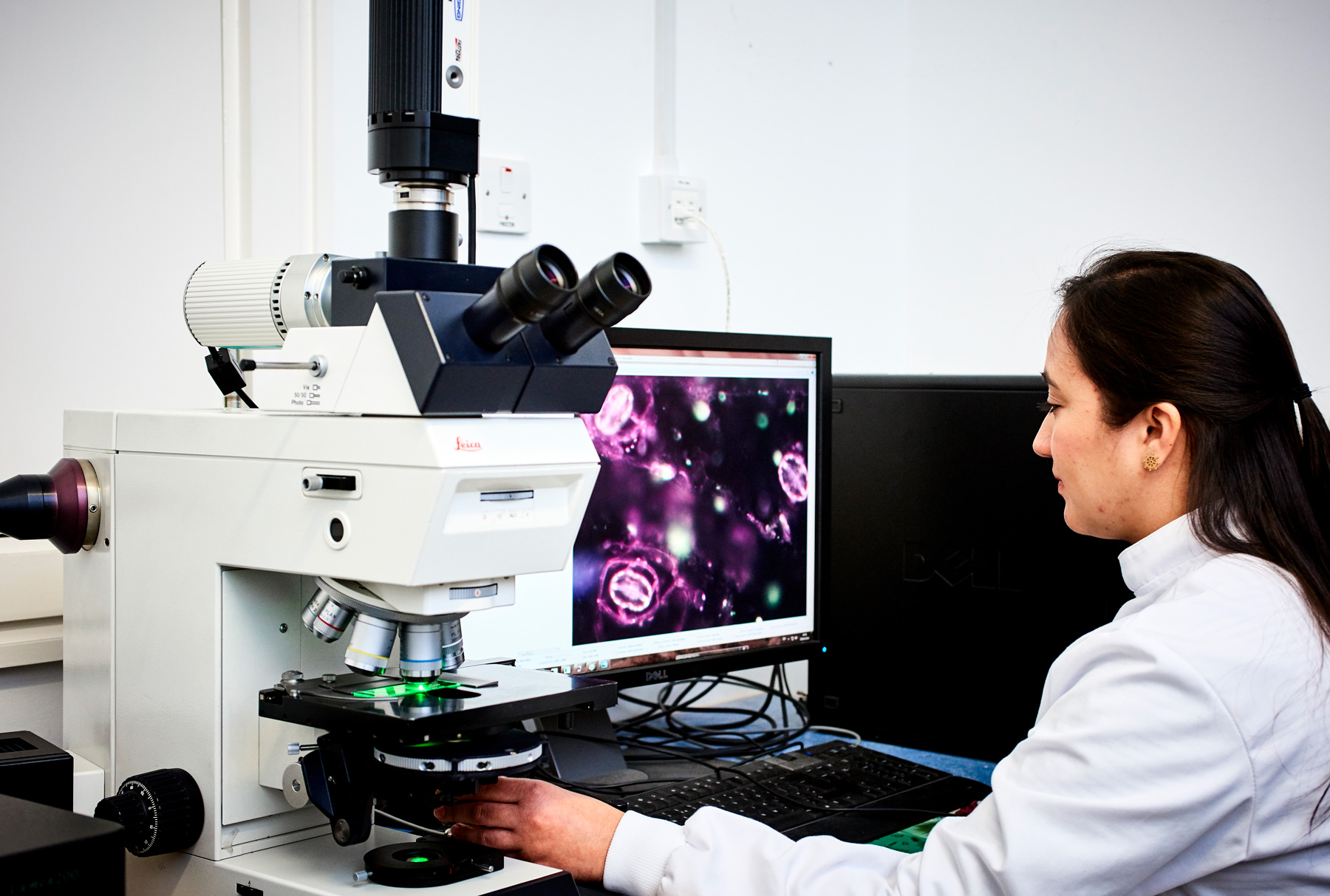Basic Research and Diagnostics
Our wide-ranging expertise in discovery science and diagnostics means we are always seeking opportunities in the cross-disease space.
Discovery science
Our Centre has strong expertise in basic and discovery science. It is exploring new opportunities for cross-disease and cross-sectoral exchange and capacity building.
We benefit from hands-on expertise in many innovative disciplines such as:
- bioengineering (e.g. creating physiological models for studying diseases and supporting drug development)
- geo-epidemiology and modelling
- repurposing of medicines
- AI application
- designing and implementing risk models to advance therapy development and compare treatment pathways
One of our goals is to make better use of the skills and experience in research teams and laboratories. We want to improve the interpretation of molecular diagnostics, particularly with regard to variants of unknown significance.
We have an excellent track record in biobanking to further rare disease research. We are exploring how best to use and support biobanks in local, national and international capacities.
We are looking at the potential for rare diseases to serve as paradigms. This could provide insights into more common diseases.
Gaining insights to the pathogenesis of a rare disease opens up possibilities for actually diagnosing patients with that condition. We have an excellent track-record of using genomics for diagnosis.
Diagnostics
Our experts engage in rare disease diagnostics in many different ways:
- discovering and understanding gene function
- delivering clinical genetics services as part of the UK Genomic Medicine Service. For instance, colleagues lead the North East and Yorkshire Genomic Medicine Service Alliance
- pioneering the development and application of genomics in rare disease diagnostics
- diagnosing previously undiagnosed patients through international disease area-focused initiatives such as MYO-SEQ
- creating and enriching 'omics' platforms for diagnostics at pan-disease level. For example, Newcastle coordinated the €12 million initiative establishing the RD-Connect platform. We currently contribute to the €15 million Solve-RD project
- creating international policies to advance rare disease diagnostics
- overseeing regional newborn screening and delivering pilots to expand national programmes
- exploring diagnostics for the approximately 15% of rare diseases that are not genetically linked
